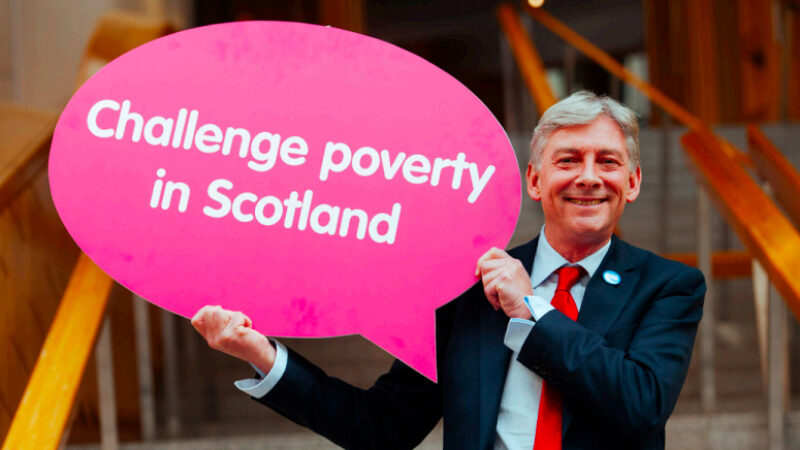
On taking office as Scotland’s First Minister in 1999, Donald Dewar noted that the new Scottish Parliament had been granted “powers to unlock opportunities and to bind communities that have been torn apart by deprivation and social pressures”. Parties could unite, he said, in their “common aims” to give the people of Scotland “a better life and a better future”. In the 20 years since, tackling poverty – and especially child poverty – has been a point of avowed consensus at Holyrood.
When the Tory government at Westminster scuppered the 2010 Child Poverty Act by repealing income-based targets for ending poverty, the Scottish Government brought in its own targets to get child poverty down to 10% by 2030, in the Child Poverty (Scotland) Act 2017 – passed with cross-party support.
Yet away from the legislative process, what is the reality? The Scottish government’s figures estimate that 240,000 children are in relative poverty – 24%. Far from being reduced to 10%, child poverty is set to increase to 38% by 2030, according to government forecasts. Scottish Labour’s own research has shown that 330,000 children are in households without access to £500 to cover a boiler breakdown.
There are huge disparities in wealth, and Scotland’s rural land remains in staggeringly few hands. Income inequality is still rising in Scotland, in spite of Nicola Sturgeon arguing in 2014 that reducing the gap between the rich and the poor would be a test of her leadership.
Yes, the Tory government’s policies are the key drivers of this trend. The SNP stresses the cruelty of Westminster and argues that separation is the only way out. But in both refusing to use its existing powers and in its own blueprint for austerity independence, the governing party has exposed its insincerity. Rather than using the growth of poverty as leverage for independence, it is time for politicians to take responsibility.
After all, we are not dealing in abstracts. Three-year-olds in households with incomes below £10,000 are two and a half times more likely to suffer chronic illness than children in households with incomes above £52,000. We cannot forget either the link between experience of child poverty and poor mental health. Following pressure from Scottish Labour and the third sector, the government’s recent announcement that it would bring forward the income supplement (though limited to under sixes) is welcome. However, the proposal remains fraught with unresolved issues relating to take-up, budget and a reliance on Universal Credit.
That is why Scottish Labour would go further and answer third sector calls to top up child benefit and lift tens of thousands of children out of poverty. The two-child benefit cap and the associated “rape clause” exemption have been widely condemned in Scotland, but the SNP has refused to effectively abolish them through countervailing payments.
It is puzzling, because this would be a prime opportunity for Scotland’s newly-devolved social security administration to establish a new gold standard for the welfare state. Then again, the most telling preview of the SNP’s post-separation approach is not Social Security Scotland, but the party’s so-called Sustainable Growth Commission. According to the Institute for Fiscal Studies, which suggested “austerity would be extended under the commission’s proposals”, this approach would mean cuts to state spending and benefits equal to 4% of GDP over a ten-year period.
Late last month, Jeremy Corbyn committed our party to scrapping Universal Credit altogether. Having long believed it is discredited and beyond reform, I welcome this move. But Scotland also has a unique opportunity to go further in supporting our people out of poverty.
As well as making proper use of existing powers, Scottish Labour will continue to explore what further social security devolution would help achieve a fairer society. And given that 65% of children living in poverty have at least one parent in work, Labour’s proposals not just for a higher minimum wage but for day one employment rights and the power for Scotland to enhance worker protection above the UK floor level will also be key.
For poverty cannot be eradicated from above. The biggest power modern-day governments have is to empower people to take on the corporate interests which drive and profit from rampant poverty and inequality. Rather than a passive receiver of cruel policies from Westminster, Scotland can instead be the radical initiator of social and economic transformation – not just at Holyrood, but in every workplace and community too.
This article first appeared in the Scottish Anti-Poverty Review.




More from LabourList
Nudification apps facilitate digital sexual assault – and they should be banned
Diane Abbott suspended from Labour after defending racism comments
Labour campaign groups join forces to call for reinstatement of MPs